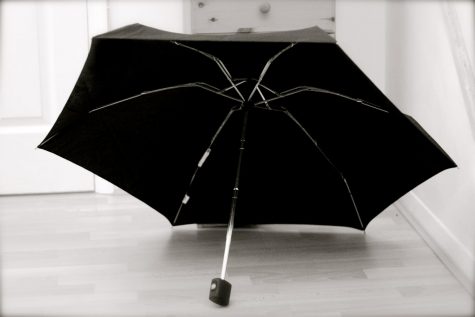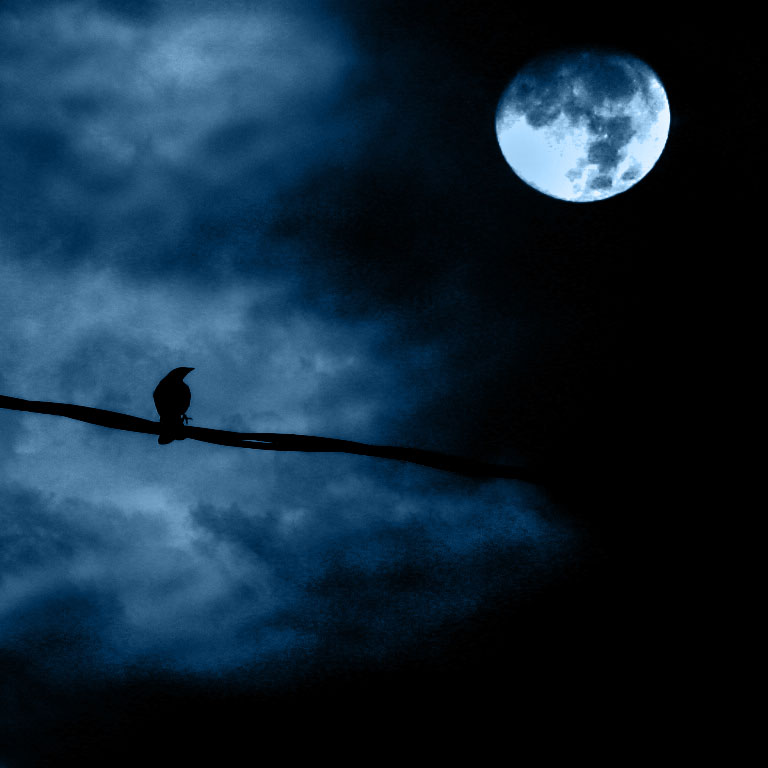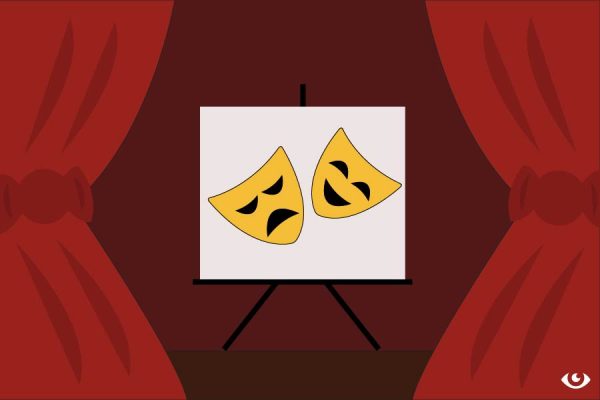Where do superstitions originate?
Today is Friday the 13th, and tonight, there will be a full moon. Both of these are events that people generally consider bad luck, and their combination tonight will find many people on edge. But why?
Where do superstitions come from? What is it about the number 13 that makes people nervous? Why do people by and large avoid opening umbrellas inside a building? Superstitions are odd little collective beliefs that are often irrational or rooted in traditions and beliefs that are so ancient that people may find them ridiculous today.
Despite this, a lot of people still find themselves compelled to knock on wood when someone utters something that could be considered a jinx, and countless buildings still skip naming the thirteenth floor. How do superstitions affect our day to day life? And why do we still put so much faith in them?
Claire Metel, (12, MST) doesn’t consider herself superstitious, but she still follows a few common superstitions.
“I don’t actually very strongly believe in any superstitions,” Metel said. “ But there are definitely some I do abide by. For example, I always knock on wood after I say something that could jinx something. Or I have certain superstitions that I abide by before sports games, like drinking coffee before my ice hockey games.”
Whether or not she actually believes in any of the superstitions involving good or bad luck, she has the attitude that abiding by some superstitions can’t really hurt.
“It’s just harmless little things,” Metel said. “I feel like people are like ‘it doesn’t inconvenience me to do or not do this thing, so I may as well take any help I can get.’”
Maddie Mattheu (12, VA) is of a similar mindset. She considers herself somewhat superstitious and believes that superstitions in some cases can give people comfort.
“I think people believe in [superstitions] because it gives them an outlet for their fears,” Mattheu said. “Avoiding superstitious things could give people comfort that nothing bad will happen to them.”

Zayne Isom (12,VA) disagrees. She does not consider herself superstitious, and unlike Mattheu, she argues that superstitions can introduce unnecessary anxieties to life rather than give people comfort.
“I think [superstitions] can consume people,” Isom said. “ If they’re always so focused on like little tiny things, it could take away from your enjoyment of things.”
Where do superstitions come from?
In 2014, a study of 1000 Americans by YouGov, a data analytics firm, found that only 13 percent of Americans consider themselves superstitious, but in the same study, 35 percent of people said they considered picking up a penny good luck.
Although many people believe in or follow superstitions, the origins of common superstitions are widely unknown. Many date back to ancient times.
The superstition surrounding bad luck on Friday the thirteenth comes from the biblical Last Supper. Because there were thirteen people at this supper, and the next day Jesus was arrested and crucified, it became unlucky to sit at a table with thirteen people. This turned into a more widespread negative association with the number thirteen. Today, tons of buildings skip labeling the thirteenth floor in fear of bad luck. Additionally, the crucifixion took place on a Friday, and therefore, the combination of both Friday and the number 13 is considered extremely unlucky.
Spilling salt is bad luck is also linked to this biblical event. In Leonardo Davinci’s “The Last Supper,” Judas Iscariot has his elbow on an upset container of salt. Because Judas was the one who betrayed Jesus, people believed that the spilled salt is what invited the devil to whisper in his ear. Therefore, spilled salt represented an invitation for the devil to possess someone. If the person who spilled the salt threw it over their left shoulder, it would blind the devil, who would no longer try to disturb the person.


Other superstitions are less religious. For example, the idea that breaking a mirror will bring seven years bad luck stems from the ancient idea that one’s reflection was a representation of his or her soul. Therefore, breaking a mirror would theoretically shatter the soul into pieces. It would then take seven years for the soul to fully recover and be able to guard against bad luck. Although the exact origins of this myth are unknown, some trace it back to Roman society which believed that human life renewed itself every seven years.
The idea that opening an umbrella indoors is bad luck is linked to the ancient Egyptians who used papyrus umbrellas to shade nobility from the sun. Because the umbrellas were made to mimic the goddess of the sky, shade from an umbrella was considered sacred. Therefore, any non-noble person who used an umbrella was offending the spirits. As time went by, this changed into the superstition that we have today.
This video shows a few other common superstitions and where they originated.
A lot of superstitions come from dated beliefs. No one really thinks that they are blinding the devil by throwing salt over their shoulders or calling on tree fairies when they knock on wood. In fact, most people probably have very little notion about where these superstitions originated. For a lot of people, these beliefs are probably rooted in habit.
Someone has told them that doing or refraining from doing certain things will lead to bad luck. In some cases, people would rather not take the risk, but in other cases, odd coincidences may convince someone who otherwise would never believe such superstitions.
“I told my friend I had never broken a bone and then less than 48 hours later, I broke my ankle,” Metel recalled. She said that this is what convinced her to start knocking on wood after a jinx.
Mattheu said that her superstitions probably came from things she saw in entertainment.
“They probably came from just being things I saw in movies, literature, tv shows, “ Mattheu said.
Whether or not you believe in these superstitions or participate in them, they are an interesting part of our culture. They affect people in more ways than one might originally imagine.
Donations are collected through The Publishers, duPont Manual High School’s booster club for J&C. Your donation will support the student journalists of duPont Manual High School. Your contribution will provide equipment and cover annual website hosting costs.









Sugata Adhikari • Sep 13, 2022 at 11:24 pm
I am interested in the topic. I am looking for the COMMON ROOT CAUSE for all superstitions. Some how it is missing.
Joseph Donahue • Jun 9, 2022 at 4:04 am
Hey there, You have done an excellent job. I’ll definitely digg it and personally recommend to
my friends. I’m confident they’ll be benefited from this website.
Jayme Silvestri • Apr 1, 2022 at 2:44 am
Its such as you read my thoughts! You seem to know so much about this, such as you wrote the guide in it or something.
Jayme Silvestri